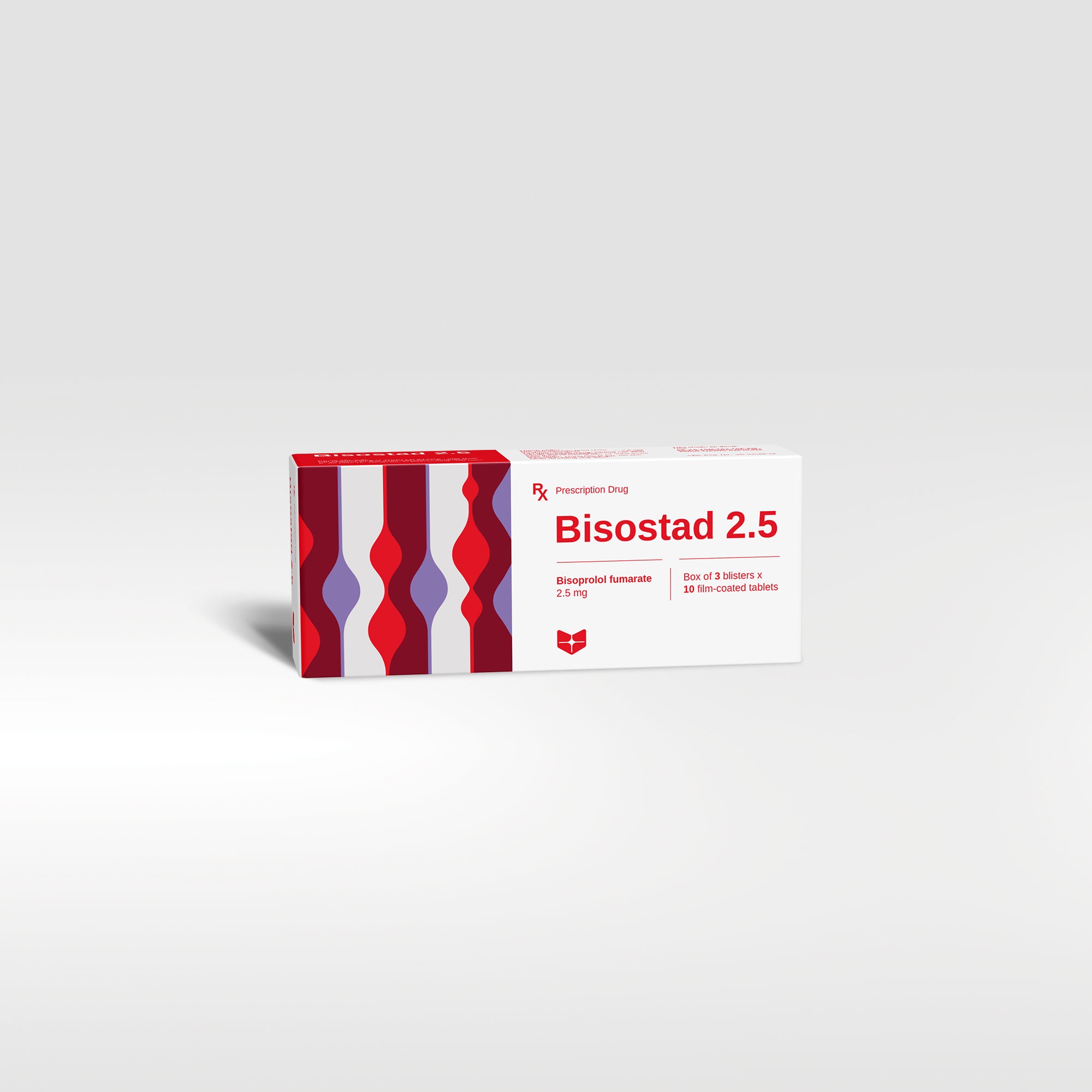Bisostad 2.5 Rx
Bisoprolol is a beta 1-selective adrenergic receptor blocking agent without significant membrane stabilizing activity or intrinsic sympathomimetic activity in its therapeutic dosage range.
| Pack size | Box of 30 tablets, 60 tablets |
| Shelf-life | 24 months |
| Composition | Bisoprolol fumarate |
| Dosage forms and strengths | Film coated tablet: 2.5 mg |
Product code :












